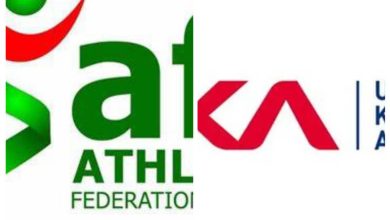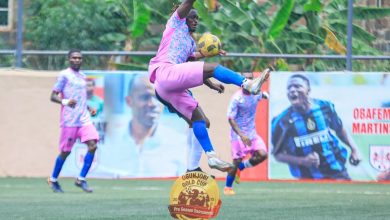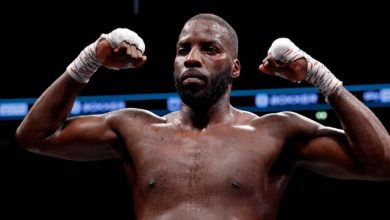‘Eric my body feels so good. Whatever you did is working so well’
Details of text messages between Blessing Okagbare and Eric Lira emerge

Details of text messages exchanged between Nigerian sprinter Blessing Okagbare and Eric Lira have emerged after the Texan man was charged for distributing performances enhancing substances,human growth hormone (HGH) and EPO to Olympic athletes.
The criminal complaint identifies 33-year-old Okagbare only as “athlete 1”, but it includes details, including her performances in specific races, that make it clear she was one of Lira’s clients.
Okagbare had been provisionally suspended for testing positive for human growth hormone in July 2021 – in an out-of-competition test – just hours before the former world championships silver medalist was due to run in the semifinals of the women’s 100 metres at the Olympics.
The Athletics Integrity Unit last year said Okagbare also had tested positive for a blood booster in Nigeria in June.
She was charged with failing to cooperate with the investigation after she disobeyed an order to produce “documents, records and electronic storage devices” in relation to the other charges, the AIU said at the time.
The criminal complaint alleges that Lira, a kinesiologist and naturopathic doctor, brought “misbranded” versions of the drugs to the United States from Central and South America before distributing them to athletes.
Federal authorities searched Okagbare’s cellphone as she was returning to the United States from Tokyo and found she had frequently communicated with Lira over an encrypted app, according to the complaint.
”LIRA and Athlete-1 (Okagbare) communicated via encrypted electronic communications discuss the sale, shipment, and use of LIRA’s illegal drugs, and specifically discussed the “testability” of those drugs by anti-doping authorities.
For example, on or about June 13, 2021, Athlete-1 wrote to LIRA, “So I took 2000ui of the E [erythropoietin] yesterday, is it safe to take a test this morning?” LIRA replied, “Good day [Athlete-1] . . . . 2000 ui is a low dosage.”
Athlete-1 replied further, “Remember I took it Wednesday and then yesterday again / I wasn’t sure so I didn’t take a test / I just let them go so it will be a missed test.”
LIRA and Athlete-1, in particular, explicitly acknowledged the effectiveness of the doping program achieved through the use of LIRA’s illegal drugs.
On or about June 22, 2021, Athlete-1 wrote to LIRA, “Hola amigo / Eric my body feel so good / I just ran 10.63 in the 100m on Friday / with a 2.7 wind / I am sooooo happy / Ericccccccc / Whatever you did, is working so well.”
Shortly thereafter, and in advance of Athlete-1’s arrival in Tokyo to compete in the 2020 Olympics, LIRA encouraged his client: “What you did . . . is going to help you for the upcoming events. You are doing your part and you will be ready to dominate””.
Notwithstanding the attempt to evade anti-doping tests, LIRA and Athlete-1 were discovered in their scheme.
On or about July 19, 2021, Athlete-1underwent an out-of-competition blood collection for purposes of drug testing by the Athletics Integrity Unit, a body charged with ensuring fair competition and prevention of doping at the Tokyo Olympics, among other competitions.
The results of that testing reflected Athlete-1’s use of human growth hormone. On or about July 30, 2021, Athlete-1 was provisionally suspended from Olympic competition, including in the women’s 100m semi-finals set to take place that same evening.
The charges against Lira were brought under the Rodchenkov Act, a law signed in 2020 that prohibits “any person, other than an athlete” to knowingly influence any “major international sports competition” with the use of prohibited substance.




